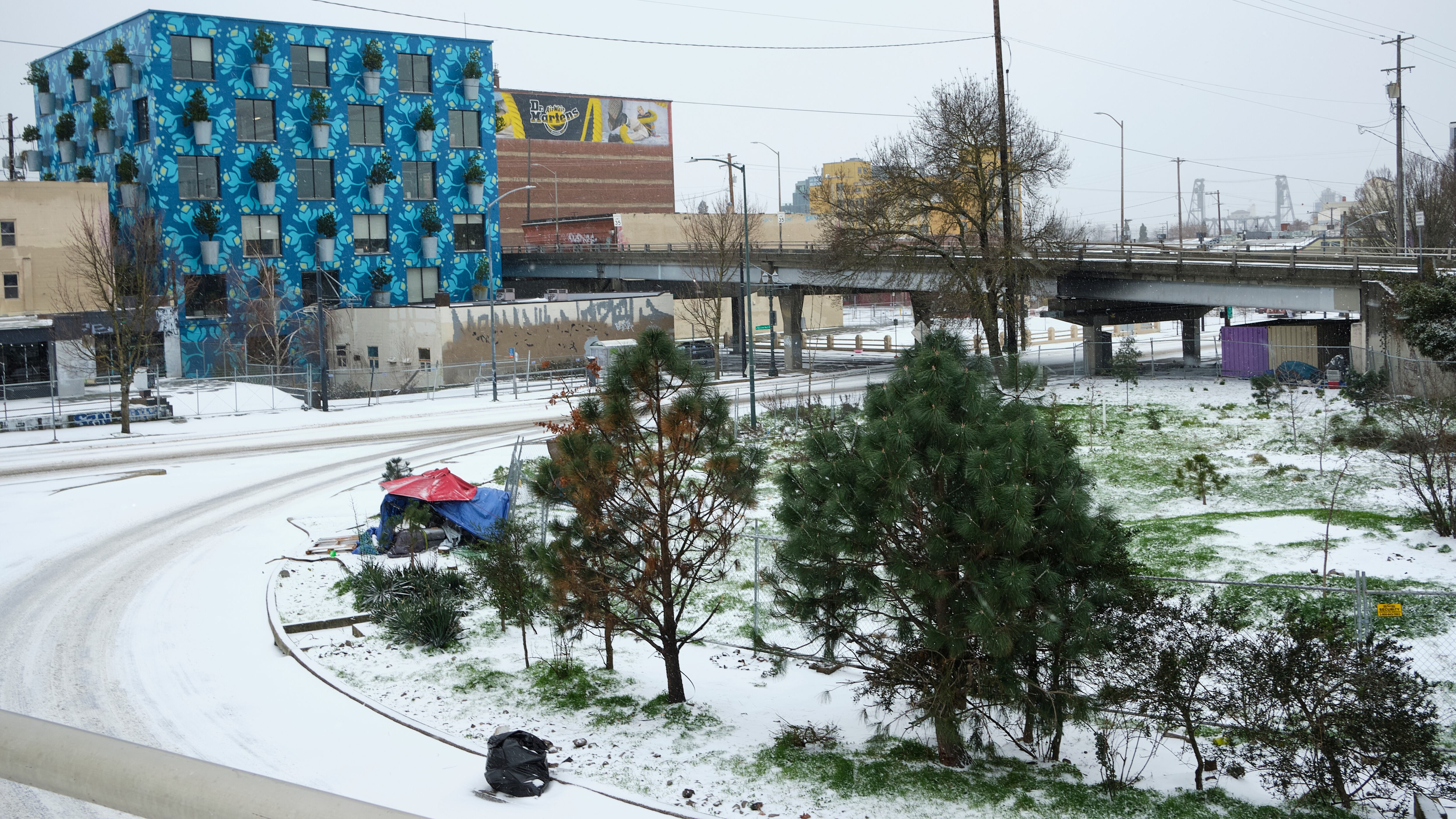Portland’s ban on daytime camping remains blocked by a court injunction, but expected decisions by two higher courts could soon help clarify its fate.
One case is currently being considered by the Oregon Supreme Court, after a Multnomah County circuit judge issued an injunction temporarily throwing out the city’s daytime camping ban five days before it was set to go into effect.
The injunction came because five unhoused Portlanders filed suit against the city in late September, saying the camping ban was unconstitutional and in violation of a state law passed in 2021 that required local camping restrictions to be “objectively reasonable as to time, place, and manner with regards to persons experiencing homelessness.”
That law, House Bill 3115, was passed to codify a pair of decisions by the 9th U.S. Circuit Court of Appeals: Martin v. City of Boise and Blake v. City of Grants Pass, which sharply limited West Coast cities’ authority to ban camping if they lacked sufficient shelter beds. WW wrote back in 2021 about the implications of the higher court’s early decision on the city’s efforts to limit camping.
City officials contend that Portland’s ban, which is somewhat limited in scope, is “objectively reasonable” under the new law. And, after the judge struck it down, the city demanded an explanation why. Multnomah County Circuit Judge Rima Ghadour has not offered one. So, on Dec. 11, the city filed a petition for writ of mandamus, asking the state’s highest court to compel the judge to explain herself.
“Portlanders deserve to know why the city s prevented from enforcing this ordinance,” Mayor Ted Wheeler said last week while asking the City Council to approve his ongoing efforts to appeal the ruling.
Wheeler said he was ready to replace the ordinance with one that passed legal muster—as soon as the court would clarify what exactly was wrong with the current version. He also wants the Oregon Supreme Court to limit the scope of the injunction to allow the city to enforce at least part of the camping restrictions. “It’s an extraordinary request,” Wheeler acknowledged.
The Oregon Supreme Court has yet to take up the request.
Meanwhile, the U.S. Supreme Court is now reviewing, and potentially overturning, one of the 9th Circuit Court’s rulings that set off the legal maneuvering in the first place.
On Friday, it took up a petition from the city of Grants Pass to review the 2022 ruling that limited its authority to sanction people for sleeping outside, a ruling that is expected to have major implications on efforts by major West Coast cities to limit outdoor camping. A coalition of varying interests, which include California Gov. Gavin Newsom, as well as the cities of Los Angeles, Honolulu and and San Francisco, had asked the Supreme Court to take up the issue.
Becky Straus, an attorney at the firm representing the five Portlanders, Oregon Law Center, emphasized that the Supreme Court’s ruling will have limited impact in Oregon, thanks to House Bill 3115.
“The outcome of the Supreme Court case will have no legal bearing on the Portland case, which is based on HB 3115, Oregon’s law about camping ordinances,” she wrote in an email to WW.

